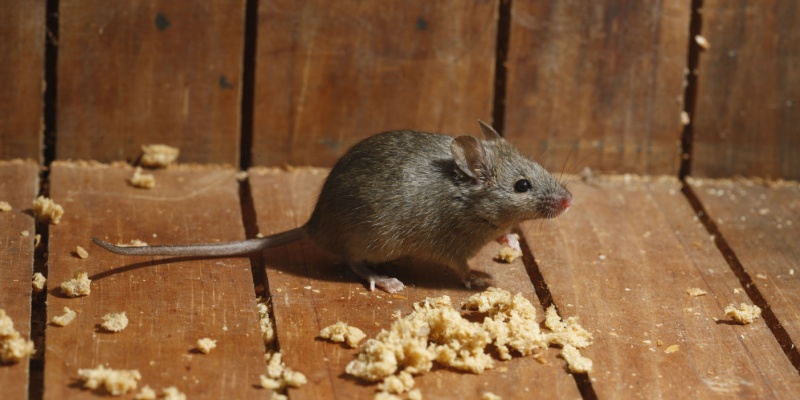Mice are tiny creatures, often underestimated due to their size and seemingly harmless appearance. However, these small rodents can cause significant damage to your property, leading to costly repairs and potential health risks. Understanding the extent of the damage mice can cause, the signs of an infestation, and the steps you can take to protect your home is crucial for every homeowner.
How Mice Can Damage Your Property
1. Structural Damage
Mice have an incessant need to gnaw, a behavior driven by the growth of their teeth, which never stop growing. This need to chew can lead them to gnaw on a variety of materials, including wood, insulation, and even electrical wiring.
- Wood and Drywall: Mice can chew through wooden beams, drywall, and other structural components of your home. Over time, this can weaken the structural integrity of your property, leading to costly repairs.
- Insulation: Mice often nest in insulation, shredding it to create a cozy home for themselves. This not only reduces the efficiency of your insulation, leading to higher energy bills, but also creates potential fire hazards.
- Electrical Wiring: One of the most dangerous risks associated with a mouse infestation is their tendency to chew on electrical wires. This can lead to short circuits, power outages, and in the worst-case scenario, house fires.
2. Contamination of Food and Surfaces
Mice are notorious for contaminating food and surfaces with their droppings, urine, and saliva. A single mouse can produce up to 75 droppings per day, which can spread bacteria like Salmonella and Hantavirus. If mice get into your pantry, they can contaminate your food, leading to potential health risks for you and your family.
3. Damage to Personal Belongings
Mice are not picky when it comes to what they chew on. They will gnaw through cardboard boxes, clothing, books, and other personal belongings. This can result in the destruction of sentimental items, important documents, and valuable possessions.
4. Increased Pest Presence
A mouse infestation can attract other pests to your property. Mice are prey to many larger animals, including snakes, owls, and other predators. An infestation can therefore increase the likelihood of other unwanted pests in your home, creating an even bigger problem.
Signs of a Mouse Infestation
Identifying a mouse infestation early is key to preventing extensive damage. Here are some common signs that you may have a mouse problem:
- Droppings: Mouse droppings are small, dark, and pellet-shaped. You may find them near food sources, along baseboards, or in cabinets.
- Gnaw Marks: Look for gnaw marks on furniture, walls, and food packaging. Fresh marks are light in color, while older marks are darker.
- Nests: Mice build nests out of shredded paper, fabric, and other soft materials. These nests are often found in hidden areas like behind appliances, inside walls, or in attics.
- Scratching Noises: If you hear scratching or scurrying noises, particularly at night, it could be a sign of mice moving around your home.
- Tracks and Smudge Marks: Mice leave behind oily smudge marks along walls and floorboards as they travel the same paths repeatedly. You might also notice tiny footprints in dusty areas.
Preventing and Addressing a Mouse Infestation
Preventing a mouse infestation is far easier than dealing with one. Here are some proactive steps you can take to protect your property:
1. Seal Entry Points
Mice can squeeze through openings as small as a dime. Inspect your home for potential entry points, such as cracks in the foundation, gaps around windows and doors, and openings around utility pipes. Seal these with caulk, steel wool, or other appropriate materials.
2. Keep Food Secure
Store food in airtight containers, and clean up spills and crumbs promptly. Keep your pantry organized, and avoid leaving pet food out overnight.
3. Maintain Cleanliness
A clean home is less attractive to mice. Regularly clean your home, paying special attention to kitchen areas where food might accumulate. Declutter storage areas where mice might build nests.
4. Use Traps and Baits
If you suspect a mouse problem, set traps in areas where you’ve noticed activity. There are various types of traps available, including snap traps, glue traps, and live traps. Bait stations can also be effective, but they should be used with caution, especially in homes with pets or children.
5. Call a Professional Pest Control Service
If you’ve identified signs of an infestation, it’s crucial to act quickly. While DIY methods can be effective in some cases, a professional pest control service like Trio Pest Control can provide a comprehensive solution. Professionals can assess the extent of the infestation, eliminate the mice, and implement preventive measures to ensure they don’t return.
Say Goodbye to Mice with Trip Pest Control
Mice might be small, but the damage they can cause to your property is anything but minor. From structural damage to health risks, a mouse infestation can have serious consequences if not addressed promptly. By understanding the risks and taking proactive steps to prevent and manage an infestation, you can protect your home and your family from the havoc these tiny rodents can wreak. If you suspect you have a mouse problem or want to ensure your home remains mouse-free, contact Trio Pest Control today. Our expert team is equipped to handle any pest issue, providing peace of mind and a safe, healthy living environment for you and your loved ones.
